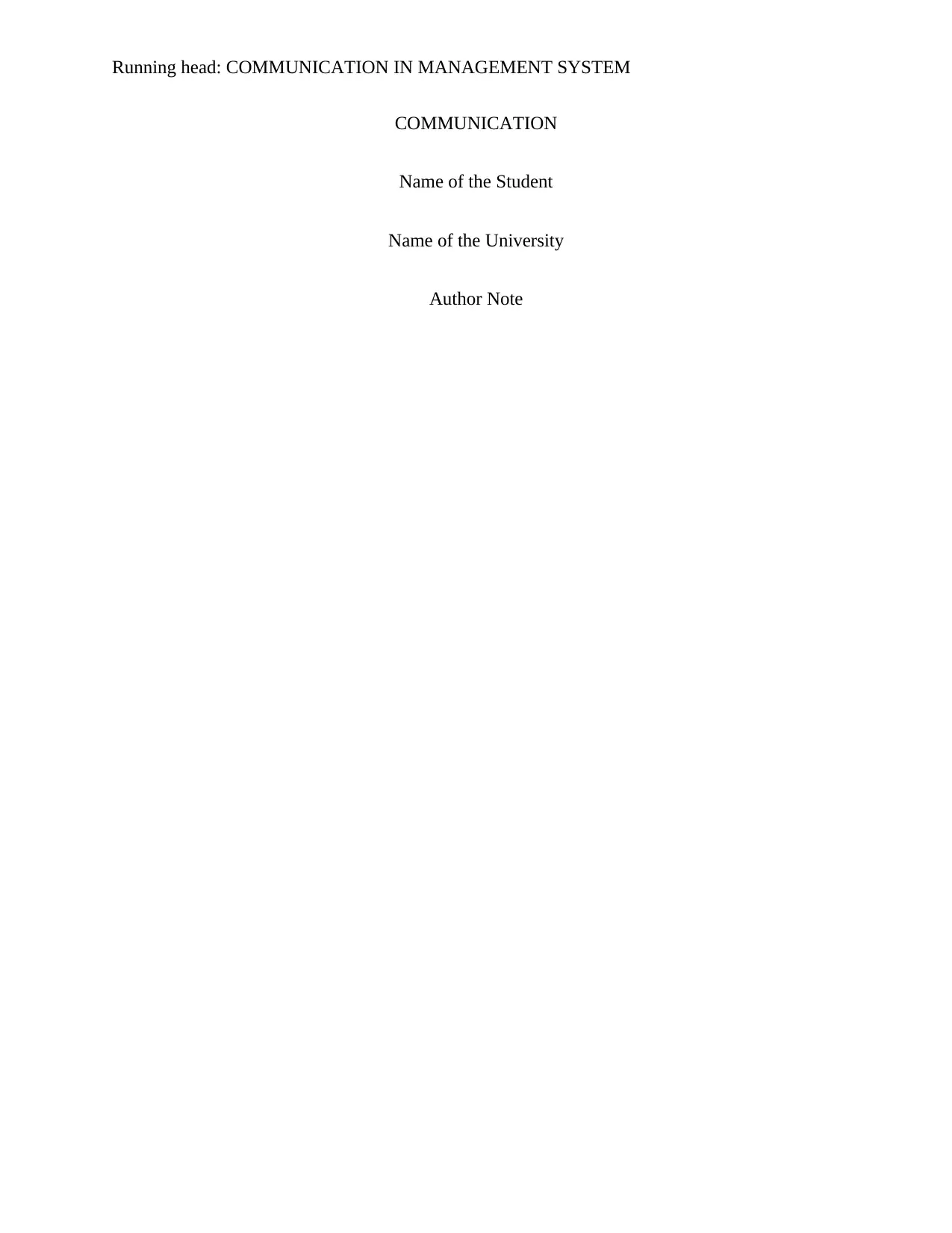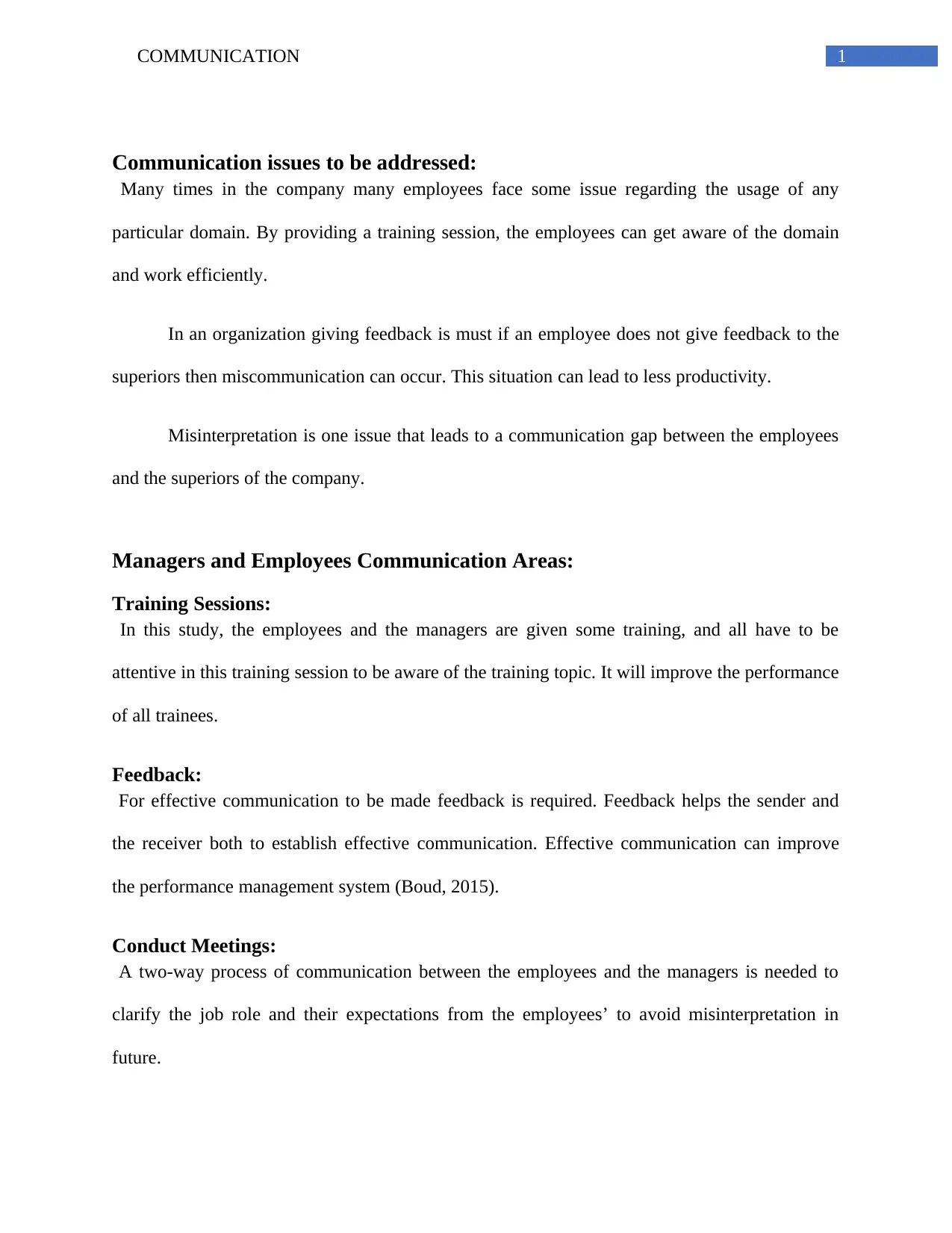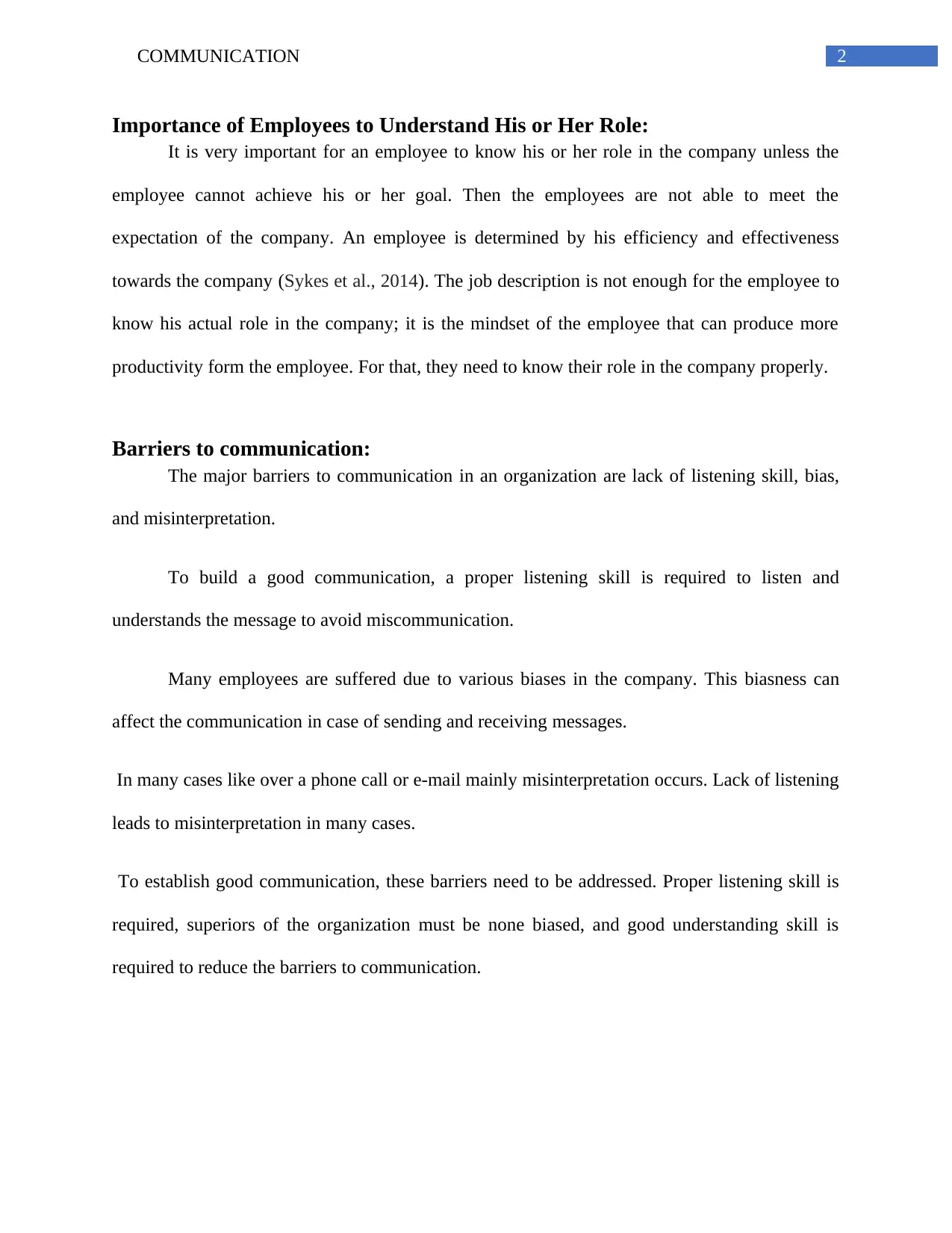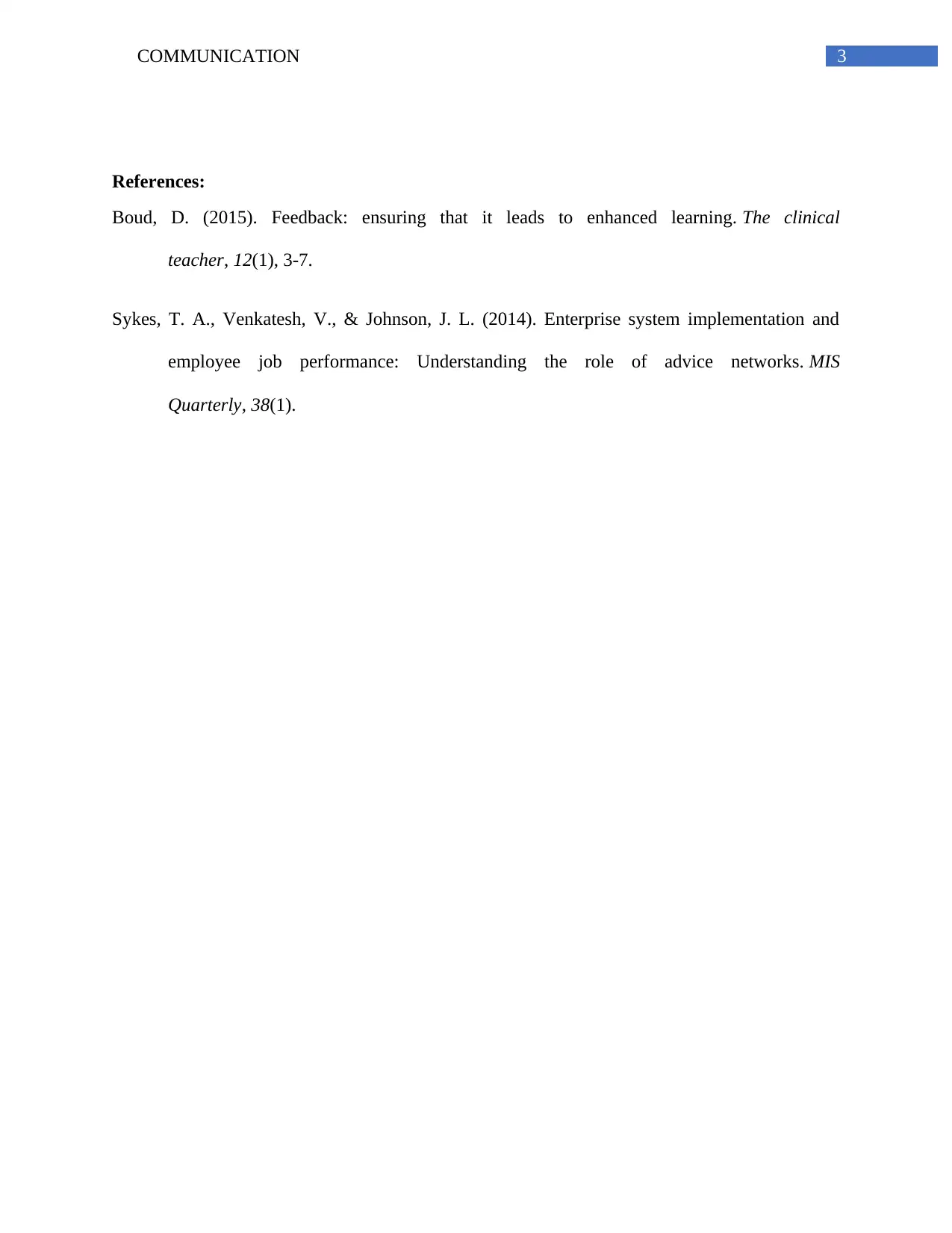Communication in Management System: Improving Employee Communication
VerifiedAdded on 2023/06/15
|4
|564
|105
Essay
AI Summary
This essay addresses critical communication issues within a management system, emphasizing the importance of clarifying employee roles and overcoming communication barriers. It highlights the significance of training sessions and feedback mechanisms in enhancing communication between managers and employees. The essay also identifies key barriers such as lack of listening skills, bias, and misinterpretation, and suggests strategies for improvement. Effective communication is crucial for employees to understand their roles, meet company expectations, and contribute to overall productivity. The study underscores the need for a two-way communication process, including regular meetings, to avoid misinterpretations and ensure clarity in job roles and expectations. Desklib provides students access to this document and many similar resources.
1 out of 4











![[object Object]](/_next/static/media/star-bottom.7253800d.svg)